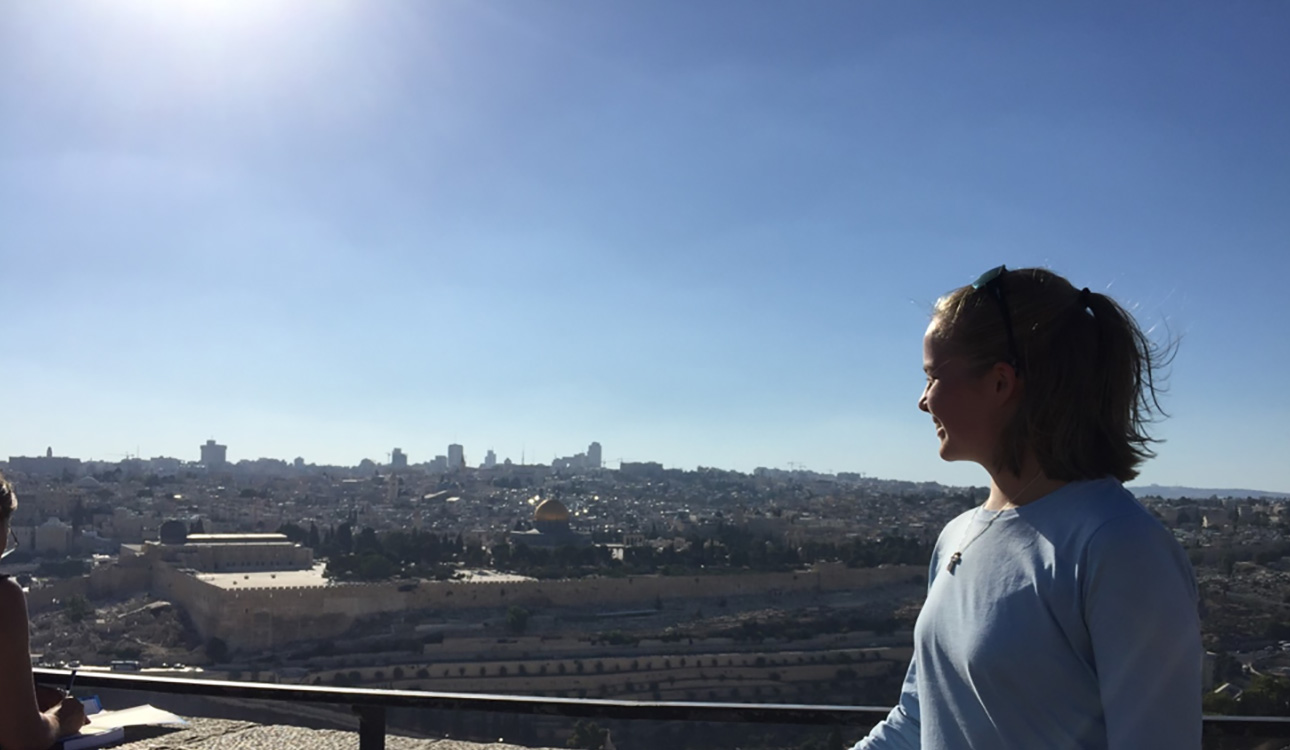
Marissa looks at Jerusalem from the Mount of Olives
By Marissa Gaston
When I decided to study abroad in Israel, I expected to be challenged; what I didn’t anticipate was just how multi-faceted my experiences here would be.
Developing a more nuanced perspective on Israeli politics has been driven by exploring and integrating into this country, then reinforced by my classroom learning. I encounter my own questions of faith constantly in both expected and unexpected ways, from visiting the Western Wall to conversations with other students that suddenly dive into theology. Homesickness has morphed into an influx of introspective energy that has facilitated personal reflection. That is just the highlight reel of how Israel has pushed me into new growth.
When I first arrived at the end of July, the bare walls and neutral palette of my new dorm room seemed to leer at me. It was a dare, and not an unfamiliar one. As a writer, I’ve faced more than my fair share of blank pages, and each one presents the same unnerving combination of emptiness and possibility. Choosing a place to start is often the hardest part, because you’re nervous and unsure, which is definitely how I felt on my first day here.
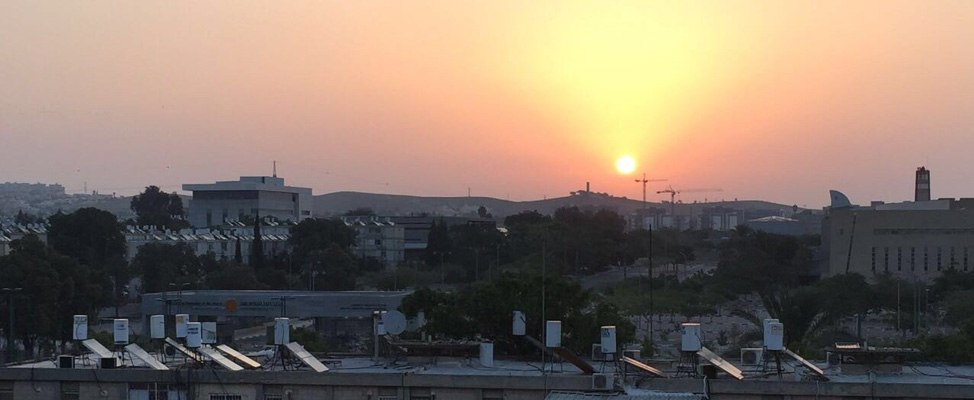
6 A.M. views from my dorm room overlooking Ben Gurion University of the Negev
But now, I look around my room and I see color: a bright pink bedspread, a rainbow made of book spines, a pen holder I made out of a bottle and scrap paper, box of green tea, a highlighted page listing the swimming pool hours taped to my wall… My room has transformed from a sterile shell into a cozy niche, becoming warmer as I’ve grown more comfortable in my life here.
I’m thankful to have Beer Sheva as my home base in Israel. Whenever I return from other ventures in the country, I’m not just coming home to my niche in the dorms; as a student at Ben Gurion University of the Negev, I’m coming home to Beer Sheva and the Negev desert.
The city is about the same size as my hometown of Bellevue, which was a stabilizing factor as I made the U.S.-to-Israel transition. Walking and bussing to different neighborhoods retains a sense of familiarity, the pace of life is brisk but not crazed, and the city lacks the tight, pinched feeling found at the core of many major urban centers. Nor is Beer Sheva saturated by tourists, meaning that Hebrew strongly predominates over English and that assimilation for those foreigners who do come to live and work here (like me) is fast-tracked.
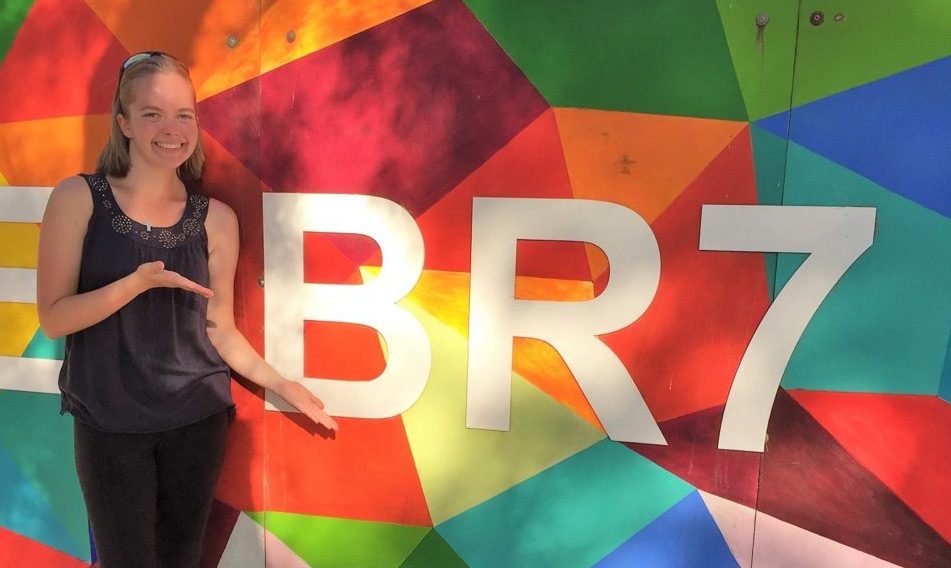
Beer Sheva (בְּאֵר שֶׁבַע) means “seven wells” in Hebrew
Although I love living in Beer Sheva, Jerusalem is undoubtedly my favorite city in Israel. Only an hour and fifteen minutes away from Beer Sheva, I travel there whenever I have the chance.
Jerusalem carries a feeling of autonomy; it knows what treasures it cradles and so it sets its own rhythm. The ancient stays vibrant because people continue to interact intimately with it in both casual and reverential ways. The Old City in particular is a world unto itself, where four major communities — Jews, Muslims, Christians, and Armenians — live together in a tangle of harmony, tension, and beauty.
Certainly, Jerusalem is a microcosm for the enduring political problems that Israel grapples with, but it also showcases hope. Israel’s diverse citizens can and do coexist here, and contrary to the impressions conveyed by the international news, there are pockets of peace — nascent and extremely fragile, but real — to be found nestled within the tension in Jerusalem. You can see it in holy places; on trams loaded with a startlingly diverse variety of people — from Christian monks in their habits to Orthodox Jewish schoolkids — who quietly commute; in outlying neighborhoods where families walk together and children play in parks. No, as a whole, Jerusalem today is not a “city of peace” (as I’ve had many Israelis tell me) but maybe, one day, it could be.
Israel itself is far from being a blank page, and Jerusalem encapsulates that. This land is laden with thousands of years of history and many chapters have already been written. However, the future — as it does for everyone — remains open.
As I learn about the complexities of Israel’s history, the thought of actively trying to help solve her modern-day problems — as opposed to just passively understanding them — is intimidating. But as with any challenge, from turning a dorm room into a home on the other side of the planet to confronting questions about faith, starting is the hardest part. And at the heart of my study abroad experience so far is the realization that the most powerful thing we can do is find the courage to begin.
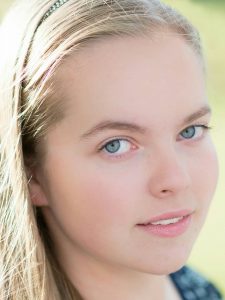 Marissa Gaston is an intended political science major on the international security track, with planned minors in history and classics. She is currently participating in the Overseas Student Program at Ben-Gurion University of the Negev (BGU) in Beersheba, Israel, through the support of Stroum Center Opportunity Grants. At BGU, she will focus on political science with an emphasis in Israeli studies, as well as Hebrew.
Marissa Gaston is an intended political science major on the international security track, with planned minors in history and classics. She is currently participating in the Overseas Student Program at Ben-Gurion University of the Negev (BGU) in Beersheba, Israel, through the support of Stroum Center Opportunity Grants. At BGU, she will focus on political science with an emphasis in Israeli studies, as well as Hebrew.


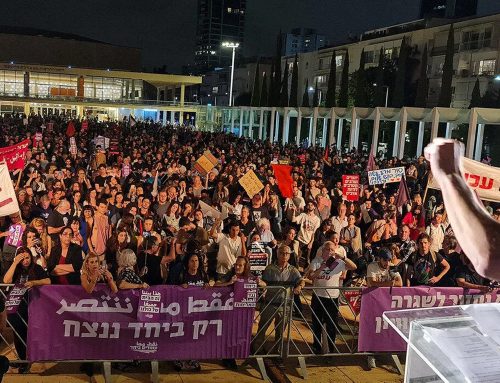




A reminder that stepping into the unknown is where growth happens, even when the walls are bare and the heart is homesick. In Be’er Sheva, in Jerusalem, the tapestry of faith, history, culture, and courage intersects in ways that shape us, ask hard questions, and beckon us toward deeper purpose. To every young person: your journey, however messy or uncertain, is powerful. God meets us there, in our blank walls, our longing, our courage to begin. Let His love transform your story.